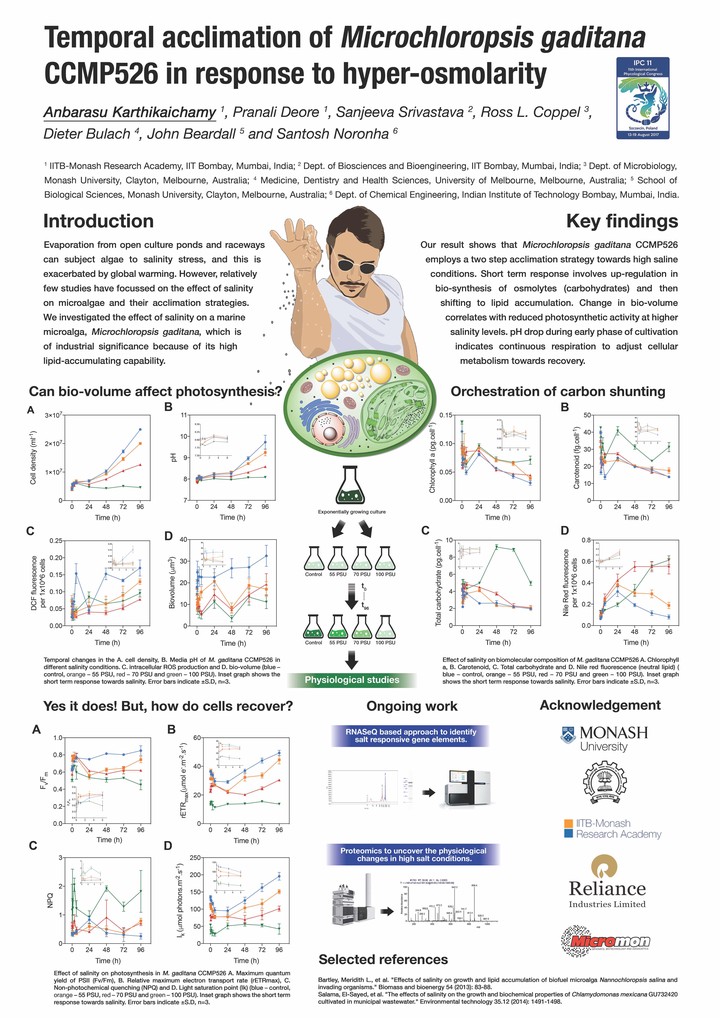Temporal Acclimation of Microchloropsis gaditana CCMP526 in resposne to hyper-osmolarity
 Poster designed by Anbu
Poster designed by Anbu
Abstract
Evaporation from open culture ponds and raceways can subject algae to salinity stress, and this is exacerbated by global warming. However, relatively few studies have focussed on the effect of salinity on microalgae and their acclimation strategies. We investigated the effect of salinity on a marine microalga, Nannochloropsis gaditana, which is of industrial significance because of its high lipid-accumulating capability. Both short-term and long-term effects of salinity was studied across various salinities (37.5, 55, 70 and 100 PSU). Salinity above 55 PSU supressed cell growth. The specific growth rate was significantly reduced, and doubling time increased, at 100 PSU. Maximal quantum yield (Fv/Fm) of cells grown at high salt concentrations were lower than for cells grown in normal sea water (37.5 PSU). The photosynthetic parameters were further evaluated by measuring the maximum relative electron transport rate (rETRmax), light harvesting efficiency alpha and Ik (light saturation point for photosynthesis). rETRmax and Ik values were severely affected at high salinity conditions, though alpha was only affected in short term responses. However, there was no significant difference in Fv/Fm, rETRmax and Ik values between the cells grown at 37.5 PSU and 55 PSU. This indicates that the cells at 55 PSU could be employing photosynthesis as a potential strategy to overcome salinity. The chlorophyll a and carotenoid contents per cell increased at 100 PSU, suggesting the possible role of reactive oxygen species (ROS) quenching by carotenoids. Further, total carbohydrate per cell increased ~2 fold after 24 hr, which is consistent with previous findings that high salt condition induces osmolyte production to counter osmotic shock. Our findings indicate a possible mechanism of acclimation to salinity, opening up new frontiers for osmolytes in pharmacological and cosmological applications.